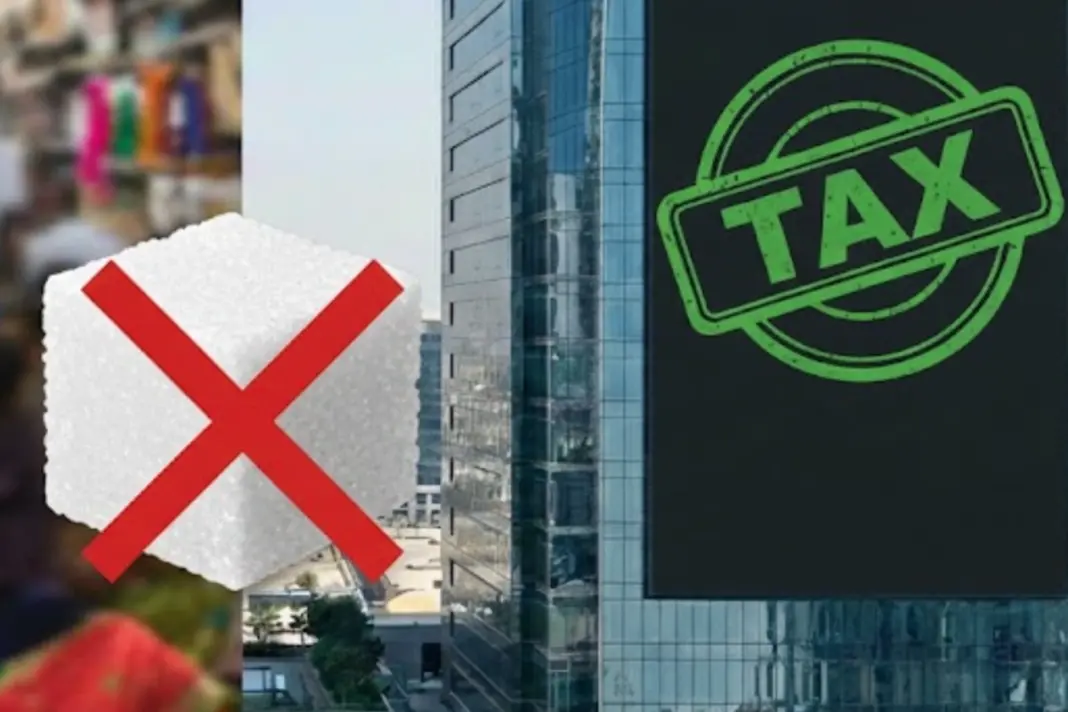Diabetes is becoming a silent alarm across the world, and a new viral video has pushed the debate right back into the spotlight. In it, Health educator Prashant Desai breaks down how Dubai is gearing up to fight rising diabetes rates with a strict sugar-tax policy, while India is still stuck in an outdated system. He compares how Dubai and India tax sugary drinks and the difference could have big implications for public health.
In the video, Desai explains that from 2026, Dubai will start taxing drinks based on their total sugar content. The more sugar a drink has, the higher the tax. This applies whether the sugar is added or naturally present.
By contrast, India’s tax system targets only added sugar. For example, fruit juice with 12 grams of total sugar but no added sugar may get just 5% GST. Meanwhile, a cola with 11 grams of added sugar may get taxed at 40%. Desai argues that both types of sugar act the same inside the body. What matters is the sugar you consume, not what the label says.
He urges the Indian government to adopt a more meaningful sugar-tax policy — one that considers total sugar content. In his words, “If we only tax added sugar, we ignore half the story.”
Why Dubai’s Approach Matters In Diabetes Control
As per Khaleej Times, UAE will replace its flat 50% levy on sweet drinks with a tiered model based on sugar concentration from January 1, 2026. Experts say this change will discourage producers from packing drinks with excessive sugar.
Dr Ahmed Hassoun, an endocrinologist at Fakeeh University Hospital in Dubai, calls the policy a “commendable public-health measure.” According to The National, he believes the model will push manufacturers to cut sugar and motivate consumers to make healthier choices.
Research also links sugary drinks to rising obesity and Type 2 diabetes worldwide.
The Case Against India’s Current Tax System
As per The Economic Times, India introduced a 40% GST slab for aerated and sugar-based drinks in 2025. But the tax still focuses only on added sugar and flavourings. not total sugar content. This means many juices, milk-based drinks and sweetened beverages slip through the tax net (as reported by India Today).
Nutrition experts say sugar (whether added or natural) affects the body the same way. Overconsumption leads to insulin resistance, obesity, fatty liver and eventually Type 2 diabetes.
India already has over 101 million people living with diabetes, with many more in the pre-diabetes stage.
Diabetes Control: What Could Change?
If India shifts to a sugar-content-based tax like Dubai’s, several things might follow:
1. High-sugar drinks would become more expensive.
2. Manufacturers would be pushed to reduce sugar.
3. Consumers would see more low-sugar options.
4. The long-term burden of diabetes and obesity could reduce.
The world is waking up to the hidden dangers of sugar. Dubai’s new tax model shows a bold commitment to tackling diabetes by addressing total sugar intake. Meanwhile, India’s current system still overlooks naturally occurring sugars and misleading “zero added sugar” labels.
If India wants to seriously address its growing diabetes crisis, it may need to rethink its approach. Because in the end, sugar is sugar – and the body doesn’t care where it came from.



